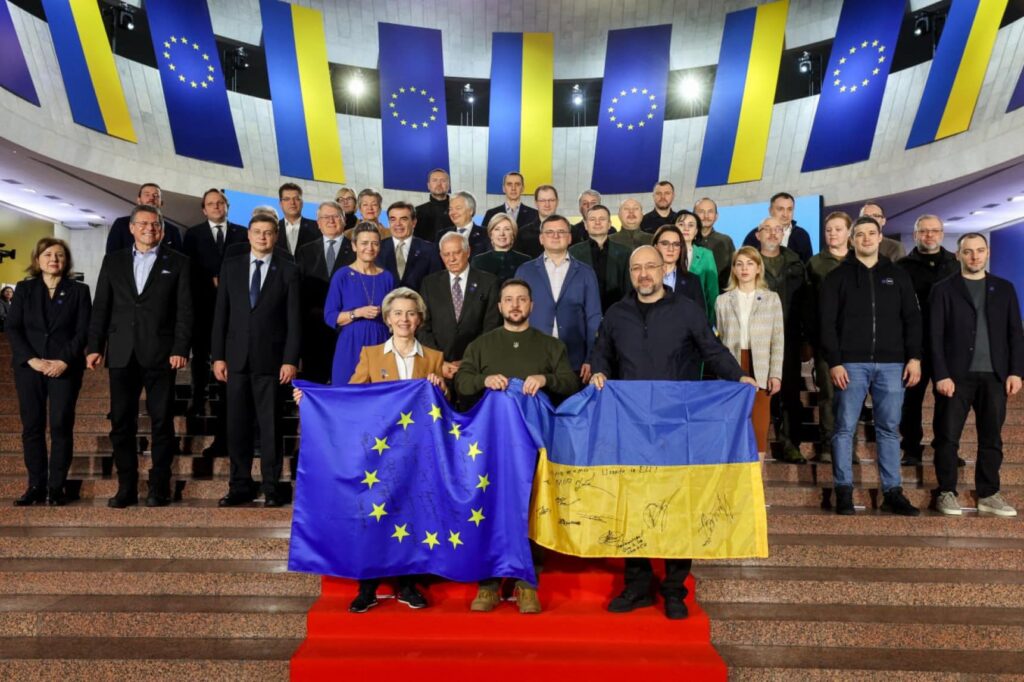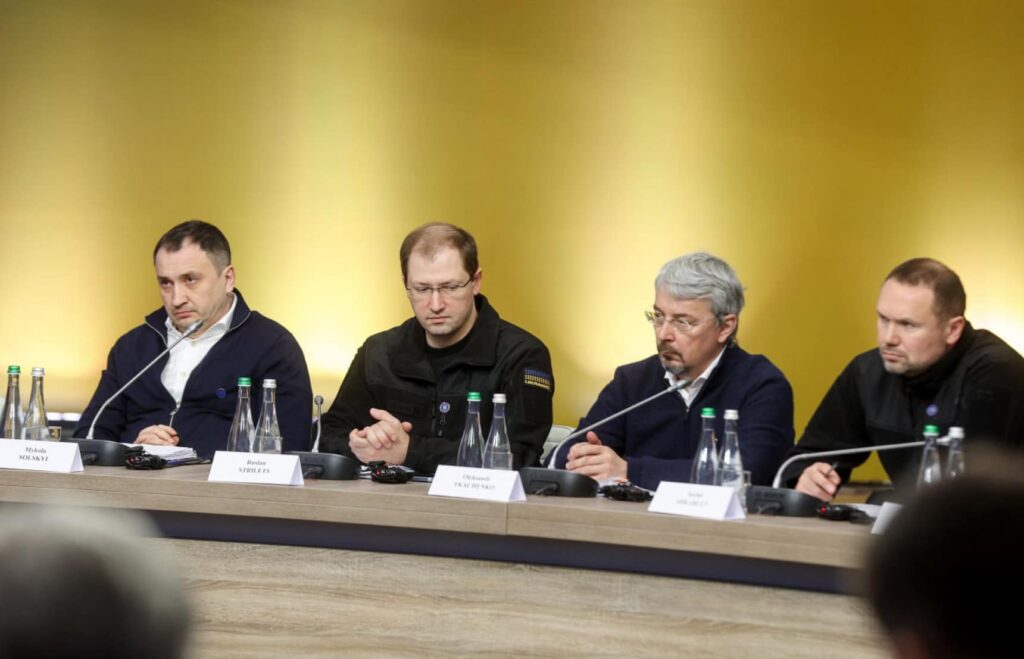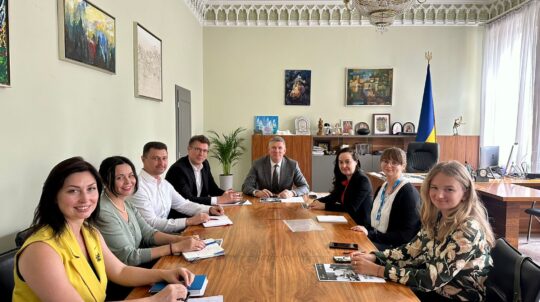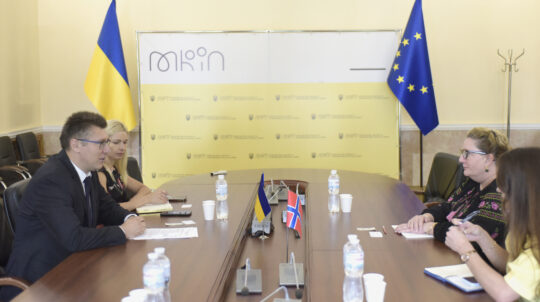On February 2, a joint meeting of the Government of Ukraine and the European Commission took place. The delegation led by the President of the European Commission, Ursula von der Leyen, who arrived in Kyiv, included 15 European Commissioners. Such a large-scale event is an opportunity for direct interaction between the parties to develop joint initiatives. The main topics of discussion: supporting Ukraine in the fight against russian aggression, coordinating efforts to restore Ukraine, continuing key reforms and bringing Ukraine closer to membership in the European Union. Among the issues on the agenda is legislation in the field of media.

“Along with direct military aggression against Ukraine, russia carries out aggression in the informational and cultural spheres. Ukraine and the world faced an unprecedented amount of disinformation and outright manipulation. In the center of Europe, there is a war for the existence of the people. The Ukrainian media, information and cultural infrastructure is a purposeful target of the russian armed forces – the russian military is shelling Ukrainian TV towers, conducting cyber attacks on Ukrainian websites, kidnapping, torturing and killing journalists, looting and destroying cultural monuments. Today, we have more than 1,200 destroyed or damaged objects of cultural infrastructure and more than 500 sites of cultural heritage. The purpose of these actions is to deny the existence of the Ukrainian people, close access to truthful information and increase the spread of outright lies and misinformation”, said Oleksandr Tkachenko, Minister of Culture and Information Policy of Ukraine.
Instead, the Government of Ukraine is successfully implementing measures to counteract the aggressor. The 24-hour telethon “#UArazom” (“UAtogether”) continues, FREEDOM TV channel produces quality content that is an alternative to russian propaganda. NSTU (Suspilne) is an independent media company of Ukraine that impartially informs society about events in Ukraine and abroad, the Center for Strategic Communications and Information Security operates.

In accordance with the recommendations of the European Commission, the Law On Media was adopted. It guarantees the independence of the media regulator, introduces additional mechanisms for the protection of the national information space, improves the application of sanctions, defines the principles of online media functioning and introduces the definition of the concept of “media literacy” at the legislative level.
“We strive to strengthen cooperation between EU member states and Ukraine in countering russian propaganda and disinformation and the spread of Kremlin’s narratives using global digital media platforms, in particular within the framework of the EU Agency for Cybersecurity (ENISA),” underlined Oleksandr Tkachenko.
As a reminder, due to the joint efforts of Ukraine and the European Union, the broadcasting of 9 russian propaganda channels on European satellites and television networks has already been stopped.
In addition, Ukraine is currently taking the initiative to hold an “Information Ramstein” to implement joint measures to counter disinformation and support the media in Ukraine, and MCIP is working with civil society on the “Media development strategy during and after the war”.

